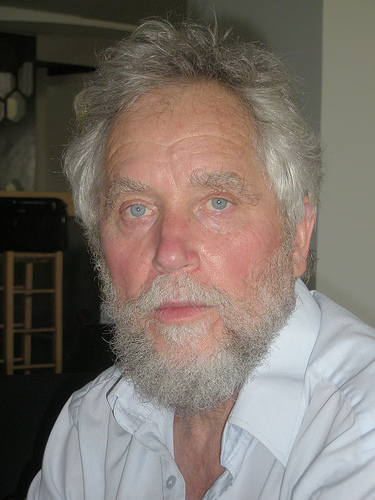
| Date | Time | Room | Title |
|---|---|---|---|
| Monday, October 4, 2010 |
4:00-5:00 pm | BESC 180 |
Arithmetic progressions
This part is connected to a problem of Erdős and Turán from the 1930s: related to the van der Waerden theorem, they asked if the density version of that result also holds:
Following Monday's lecture, there will be a reception in honor of Professor Szemerédi at the Koenig Alumni Center, 1202 University Avenue (the SE corner of Broadway and University). |
| Wednesday, October 6, 2010 |
4:00-5:00 pm | HUMN 135 |
Long Arithmetic progressions in sumsets
We are going to give exact bound for the size of longest arithmetic progression in sumset sums. In addition, we describe the structure of the subset sums, and give applications in number theory and probability theory. (This part is partially joint work with Van Vu.) |
| Friday, October 8, 2010 |
4:00-5:00 pm | HUMN 135 |
Embedding sparse graphs into large graphs
I will describe and illustrate a method to embed relatively sparse graphs into large graphs. This will include the case of Pósa's conjecture, El Zahar's conjecture, and tree embedding under different conditions. Among other things, we shall give several generalizations of the central Dirac Theorem, both for graphs and hypergraphs. The methods used are elementary. A large part of this work is joint with coauthors, e.g. Asif Jamsed, Imdadullah Khan, Sarmad Abbasi, and Gábor Sárközy. |

Endre Szemerédi |
Endre Szemerédi was born in Hungary and received his PhD from Moscow University in 1970 under the direction of I.M. Gelfand. His research interests include arithmetic combinatorics, extremal graph theory, elementary number theory and theoretical computer science. Since 1986, he has held a State of New Jersey Professorship of Computer Science at Rutgers University, and he is also a permanent research fellow at Alfréd Rényi Mathematical Institute. Professor Szemerédi has received numerous prizes and honors, including being elected to membership of the Hungarian Academy of Sciences in 1989, and to the American National Academy of Sciences in 2010. He is married and has five children. |
This Lecture Series is funded by an endowment given by Professor Ira M. DeLong, who came to the University of Colorado in 1888 at the age of 33. Professor DeLong essentially became the mathematics department by teaching not only the college subjects but also the preparatory mathematics courses. Professor DeLong was a prominent citizen of the community of Boulder as well as president of the Mercantile Bank and Trust Company, organizer of the Colorado Education Association, and president of the charter convention that gave Boulder the city manager form of government in 1917. After his death in 1942 it was decided that the bequest he made to the mathematics department would accumulate interest until income became available to fund DeLong prizes for undergraduates and DeLong Lectureships to bring outstanding mathematicians to campus each year. The first DeLong Lectures were delivered in the 1962-63 academic year.